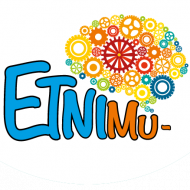Pilots on Finnish memory work with ethnic minorities started in 2003 as a part of the IkäMAMU-activities of the Finnish Association for the Welfare of Older People. IkäMAMU mapped the situation of brain health among the Russian and Estonian-speaking residents of Helsinki. IkäMamu-activities also applied existing memory materials to work with the
Russian-speaking elderly with memory disorders and their family members. In 2004 services began for the Estonian and Russian-speaking customers at Kamppi service
centre in Helsinki, where the Memory Clinic of the Helsinki Alzheimer’s Association operated. The memory clinic screened for memory impairments through assessment tests. Then, for the first time, a care pathway was created for the Estonian and the Russian-speaking elderly and their family members with social and health care professionals. At the time also a peer support group for Russian-speaking carers for elderly with memory disorders was started.
The IkäMAMU-project was ended in year 2005, and since then also the Memory Clinic of the Helsinki Alzheimer’s Association has stopped its services. Need for memory services in different languages, however, has not gone away – rather the opposite. Based on the feedback from different ethnic minority groups, the elderly would need and want to improve their brain health and gain more information about memory disorders in their native languages.
In order to meet such needs, Improving the Brain Health of Ethnic Minority Elderly, ETNIMUproject [Etnistaustaisten ikääntyvien ihmisten aivoterveyden edistäminen] was started. In addition to the Estonian and Russian-speaking groups, that had already existed, new target groups included older Somali women and the Roma people.
